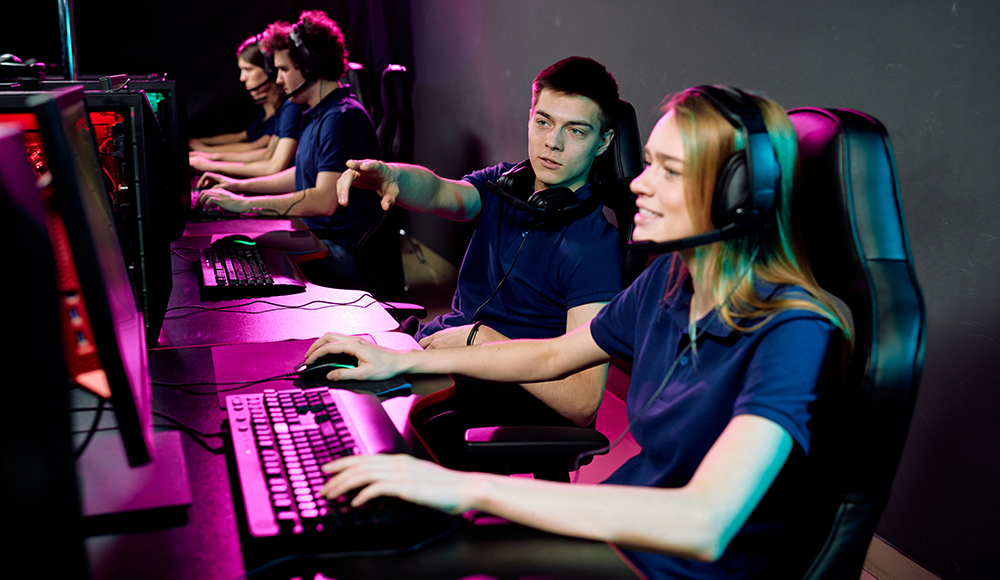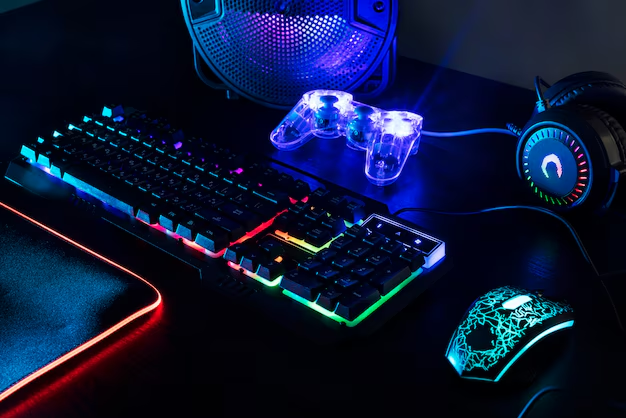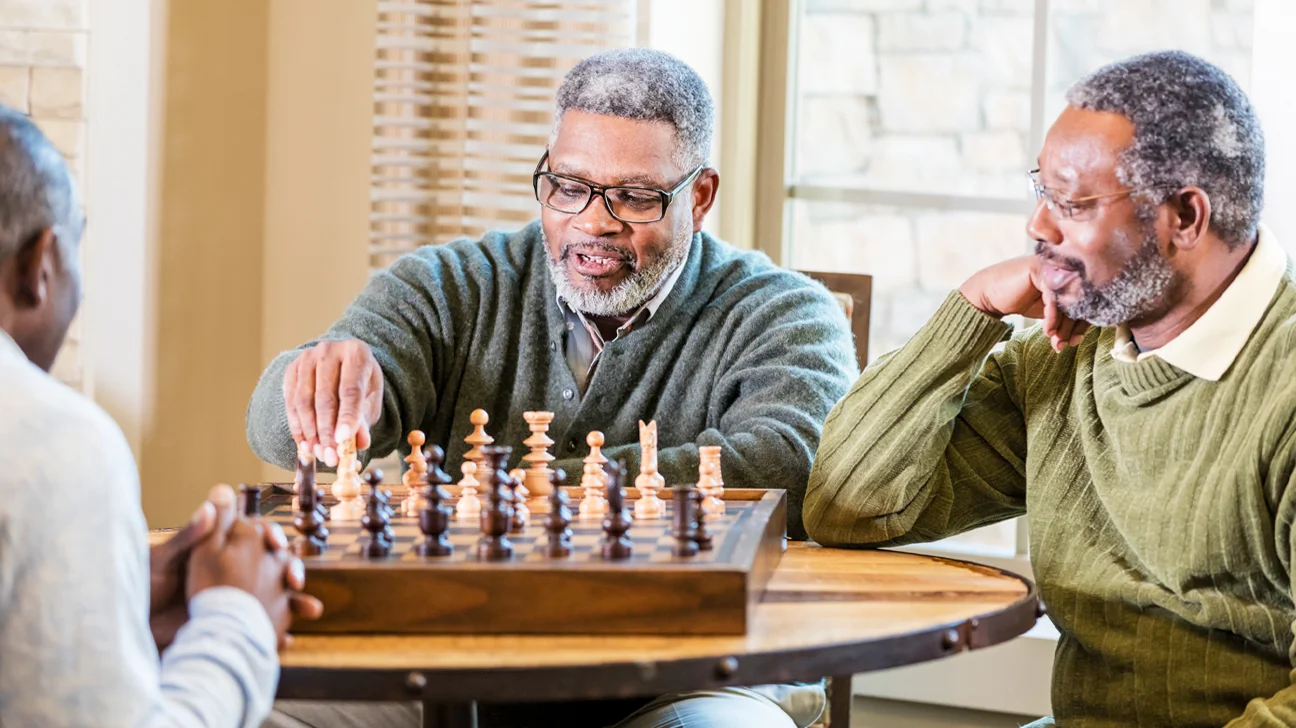Esports, or electronic sports, have evolved from a niche activity into a massive global industry, with professional players, teams, tournaments, and millions of dedicated fans. Competitive esports is now one of the most rapidly growing sectors in the entertainment industry, with games like League of Legends, Dota 2, Counter-Strike: Global Offensive (CS: GO), and Fortnite taking center stage in the competitive gaming world.
Winning in competitive esports requires more than just raw skill and quick reflexes; it demands a combination of strategic thinking, teamwork, consistency, and preparation. In this article, we’ll explore the best strategies and approaches to excel in competitive esports, from individual skills to team dynamics and mental resilience.
1. Mastering the Fundamentals of the Game
Before diving into complex strategies, it’s crucial to master the basics of the game you are competing in. Every esports title has its own unique mechanics, maps, characters, and objectives. Whether you’re playing a real-time strategy (RTS), a multiplayer online battle arena (MOBA), a first-person shooter (FPS), or a battle royale, a deep understanding of the game’s fundamentals is essential.
Know the Game Mechanics Inside and Out
- Game Rules: Understanding how the game works is non-negotiable. This includes knowing how the game’s objectives are won, the roles of different characters or units, and how your actions impact the broader team and match dynamics.
- Game Updates and Patches: Esports titles often receive updates and balance changes that can affect gameplay. Staying on top of these changes is crucial as the meta (most effective strategies) can shift.
- In-Game Economy: Games like League of Legends and CS: GO require you to understand in-game currency or resources, such as gold, credits, or items. Smart resource management is key to gaining an advantage.
Improve Technical Skills
- Aiming and Reflexes: For FPS games, improving aiming precision and reaction time is critical. Players should practice regularly using aim trainers or in-game aim practice modes.
- Positioning: Understanding where to be on the map or battlefield is essential in games like Dota 2 or CS: GO. Good positioning gives you an advantage over opponents and can help you avoid getting caught off-guard.
- Map Awareness: Many esports games have large maps with different areas of control. Learning to read the map and be aware of enemy positions is essential for success, especially in strategy-based games like StarCraft II or Rainbow Six Siege.
2. Building and Improving Teamwork
In most competitive esports, teamwork is vital. Even in games that are largely skill-based, such as Apex Legends or Overwatch, the importance of good coordination cannot be overstated. Team dynamics are often what separate winners from losers.
Communication is Key
- Clear Callouts: Effective communication with your teammates can make the difference between victory and defeat. In games like League of Legends, clear callouts about enemy positions, objectives, and plans can ensure the team is always in sync.
- Voice Communication: Using a voice communication platform, like Discord, is essential in high-level competition. Non-verbal cues are often too slow to react to in fast-paced games.
- Positive Reinforcement: Constantly encouraging teammates, even in tense moments, fosters a positive atmosphere. Avoid toxic behavior or negativity as it can negatively impact team morale.
Develop Synergy with Your Team
- Role Understanding: In team-based games, each player usually has a specific role. Understanding and mastering your role is essential. For example, in League of Legends, you might be an AD Carry (damage dealer), Support, Jungler, Mid-lane, or Top-lane player—each with different responsibilities that contribute to the overall team strategy.
- Practice Together: A team that practices regularly together will develop better synergy. Through scrims (practice matches), teams can refine their strategies, learn from mistakes, and build trust.
- Adaptability: Competitive teams need to be adaptable to changing situations. Whether the team is forced to adopt a new strategy during a match or adjust to a new meta after a patch, flexibility is important.
3. Mental Toughness and Psychological Resilience
Esports is not just about physical skills but mental endurance. Competitive gaming can be mentally taxing, and players need to be able to focus for extended periods, handle pressure, and remain calm under stress.
Dealing with Pressure
- Staying Calm in High-Stakes Situations: In the heat of a match, players often face pressure from the crowd, the stakes of the game, and their teammates. Developing the ability to stay calm and composed is essential for making the right decisions in critical moments.
- Self-Control: Tilt, or letting frustration negatively impact your gameplay, is a common problem in esports. Players need to learn how to control emotions like anger, frustration, and anxiety, which can impair focus and decision-making.
Maintaining Focus
- Routine and Discipline: Successful esports players often have a daily routine that includes practice, review, and downtime. This helps them stay sharp mentally and physically.
- Avoiding Burnout: Overtraining can lead to burnout, which negatively impacts both mental and physical performance. Balancing intense practice with rest is important to maintaining peak performance over the long term.
Team Morale
- Team Cohesion: A unified team will always have a better chance of winning than one where there is tension or disunity. Foster trust and respect among teammates and ensure everyone feels they are valued.
- Positive Mindset: Encouraging an optimistic mindset and creating a culture of support helps mitigate negative outcomes. Even when you lose a match, learning from mistakes and moving forward with a positive outlook can drive improvement.
4. Analyzing and Adapting Strategies
In competitive esports, no two games are ever exactly the same. The key to long-term success is the ability to adapt and refine strategies based on evolving circumstances.
Study Opponents
- Analyze Opponents’ Playstyles: Watch replays of your opponents’ past games, focusing on their playstyles, strategies, and any weaknesses they may have. Knowing how they tend to approach the game will allow you to exploit vulnerabilities.
- Counter-Strategies: Having an adaptable mindset means being ready to change your strategy mid-game. In CS: GO, for example, if an opponent’s strategy involves heavy rushing, adjusting your positioning and defensive strategies can counter their approach effectively.
Review Your Own Performance
- Post-Match Analysis: After every game, take time to review the match. What worked? What didn’t? Are there mistakes that you can learn from? Successful teams always conduct post-match reviews to identify strengths and weaknesses.
- VOD Review: Watching replays (or VODs) of your games can help pinpoint areas where you can improve. Many top-level players and teams have dedicated analysts who review gameplay and provide insights into how to improve team strategies and individual performance.
Evolving Your Strategy
- Experiment with New Tactics: Don’t be afraid to experiment during practice sessions or scrims. Trying new strategies and roles in a low-stakes environment can help you prepare for a wider range of situations in actual tournaments.
- Adapting to the Meta: Esports titles constantly evolve through updates, and the meta (the most effective strategies and techniques) changes over time. Staying updated on patches and shifts in the game’s meta is crucial to maintaining an edge over competitors.
5. Physical and Mental Preparation
Esports may not be physically demanding in the same way traditional sports are, but players need to maintain physical and mental health to perform at the highest levels. Long gaming sessions can take a toll on the body, and being able to stay physically fit and mentally sharp is essential.
Physical Health
- Ergonomics: Since esports players spend long hours sitting in front of screens, good posture and ergonomic setups are important to avoid strain or injury. Adjustable chairs, monitor height adjustments, and proper keyboard and mouse positioning can reduce the risk of repetitive strain injuries (RSI).
- Exercise and Nutrition: Physical fitness plays a role in mental sharpness. Regular physical exercise helps increase focus and stamina during long gaming sessions. Proper nutrition, hydration, and sleep are also critical factors in maintaining peak performance.
Mental Health
- Avoiding Burnout: Mental health is often overlooked in the esports community, but burnout is a significant issue for players who practice excessively without sufficient breaks. Regular rest, social activities outside of gaming, and pursuing hobbies outside of esports can help maintain balance.
- Mindfulness and Stress Management: Practices like mindfulness, meditation, and relaxation techniques can help players manage stress and improve focus. Mental resilience is as important as physical skill in the competitive esports arena.
Conclusion
Winning in competitive esports requires a well-rounded approach that combines technical skills, strategic thinking, teamwork, mental toughness, and physical health. By mastering the fundamentals of the game, building synergy with teammates, maintaining psychological resilience, and staying adaptable to changing conditions, players can position themselves for success in competitive esports.
With the growing professionalism and global reach of esports, players who prioritize consistent practice, strategic analysis, and maintaining overall well-being will be able to compete at the highest levels and potentially rise to prominence in the competitive gaming world.




